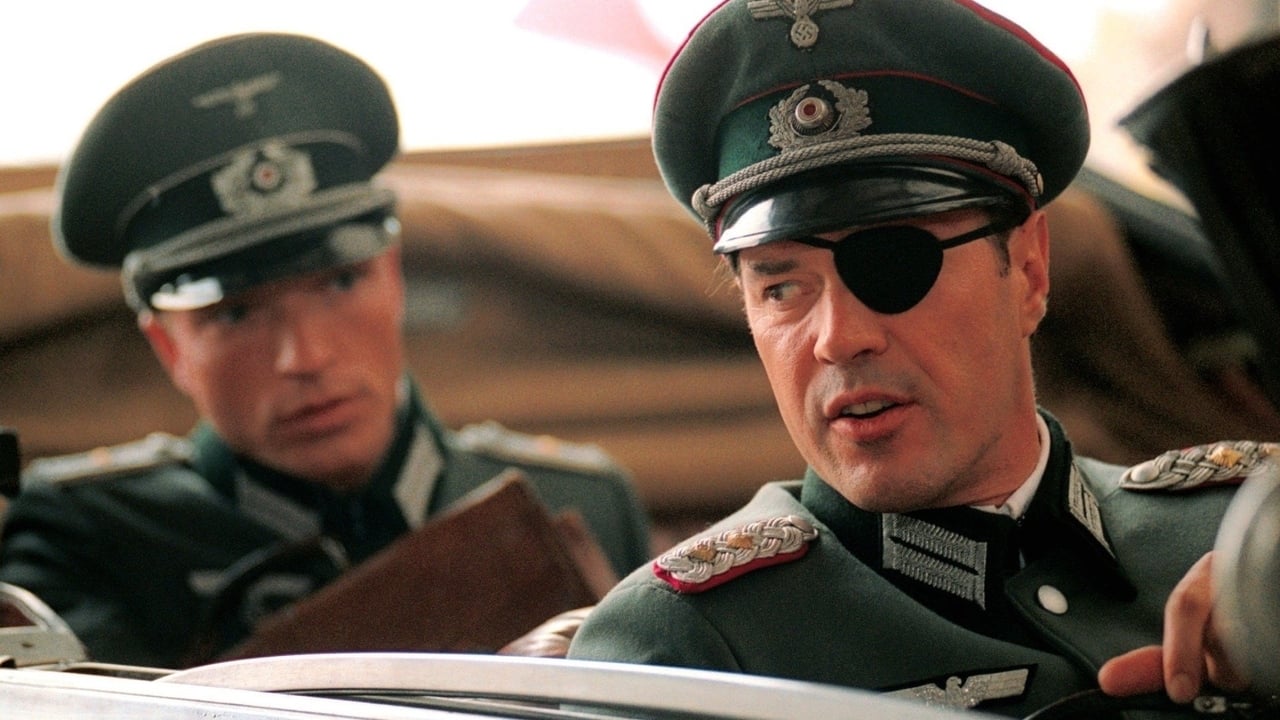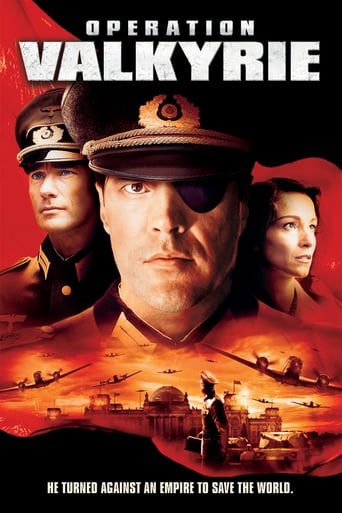

This film was made in Germany for a lot less than what Tom Cruise made his overpriced epic for... and it is a far better movie.What does it do right. Hey, for starters, it's in German. You get the feel for the language and the culture that you simply don't get with Cruise's overpaid Hollywood buddies doing bad optional German accents.Secondly, it's a more honest look at Von Stauffenburg the man. Von Stauffenburg was a guy who initially supported the Nazis. (In fact, almost all of the July 20 conspirators did, they only turned against Hitler when Germany started losing the war. Kind of like Congressional Democrats!) You also see how his religious convictions guided him. Certainly, God would endorse his actions because he was in the right. (Well, uh, no. What a kookie prankster, that God.) Essentially, you get less drama, more character interplay and study. Almost all the same characters are here in this film. The only character who is kind of given the short shift is Hitler himself. He only appears in two scenes and get very little dialog. Sorry, if you are going to make a film about killing Hitler, we need to see more Hitler.Historical details are gotten right. For instance, General Beck commits suicide, but this movie points out he botched his attempt and had to be finished off. This one focuses on Von Stauffenburg more, while Cruises version goes into strange discussions of internal German politics that slowed down the plot.Now, the only reason this film is getting a second look is because some clever people decided to re-release it alongside the Cruise movie.
... View MoreNot to be confused with the Tom Cruise movie that just came out, this five year old German TV movie 'just happened' to be released on DVD in America right after that movie, uh huh... Anyway, it was surprisingly good quality for a TV movie and it was interesting to see the differences between the two movies. Of course 'Valkyrie' was able to go more into depth with the characters because it was a half an hour longer but there were many scenes that were very similar in both movies. This movie shows us the fate of the main character in the first scene. Bad idea! Luckily, I had already seen 'Valkyrie' so the whole movie wasn't ruined for me.
... View MoreThere is no question to honour the activity and exploit of Stauffenberg, but if you are not enough informed about the background of this heroic deed, you are getting really fast an uncritical illustration. It is historically incorrect to focus the whole "coup d'état" of the 20 July 1944 on Stauffenberg. It seems that it was Stauffenbergs own motivation to fulfill the assassination, but there were a lot of other people, who were involved in the preparation. Beck and Olbricht were leading characters long time before, for example. In this movie they just appear as minor characters compared to Stauffenberg. At least it should be "mentioned" that there were two other tries to kill Adolf Hitler the days before the 20th July. I know that it is almost impossible to realize a historical moment as the 20th July in less than two hours, but there were as well a lot of scenes which could be deleted: for example Stauffenbergs "turning point" in Tunesia and this "more funny scene" with this Swabian guy or the long discussion with his wife wasn't that important for the plot...more concentration of basics would have been better. However, I am a great admirer of Sebastian Koch and he was acting fantastic as Stauffenberg. Very deep and clear and not exaggerated at all in opposite to some other characters in this movie. (O. Dietrich was horrible as Goebbels...he should continue to make comedy!)
... View MoreThe assassination attempt on Hitler in July, 1944 is one of the most important events in modern German history. It has been reconstructed dozens of times - none have really been successful. "Es Geschah am 20. Juli" and "Der 20. Juli", both in 1955, were the first early attempts of "Vergangenheitsbewaeltigung" in Germany, both were made for the cinema screen, both with well-known actors of the time that were old enough to experience the event.Several re-filmings (To name two more successful ones: Operation Walküre, The Plot to Kill Hitler) were less successful. Filming in color was not enough to make a good story out of a weak one."Stauffenberg", on German TV was a much advertised and, rumor has it, expensive event. The cast filled with actors the audience is used to seeing on TV, not one a really good one.The plot is ok, but runs through the timeline very quickly, starting in 1933 and running to the Summer of 1944 in about 3-4 minutes, without delivering any input. Too little emphasis is placed on the historical context to show the drama of the situation, and if the attempt was to portray the characters decently, not enough is done here. Without historical knowledge of the time, it is hard to follow the characters, their roles and positions.Hitler and Goebbels (portrayed by Udo Schenk and Olli Dittrich) both look like they have just climbed out of their tombs. The attempt to make them look really evil, fails. In his short appearance, Olli Dittrich makes of Goebbels an insecure, hysterical zombie - it made me laugh.A few moments of the film did keep me on edge, although I knew the outcome, especially shortly before the execution of Stauffenberg and the other "enemies of the state" - a plus.Yet: I am still waiting for THE excellent portrayal of the event.
... View More